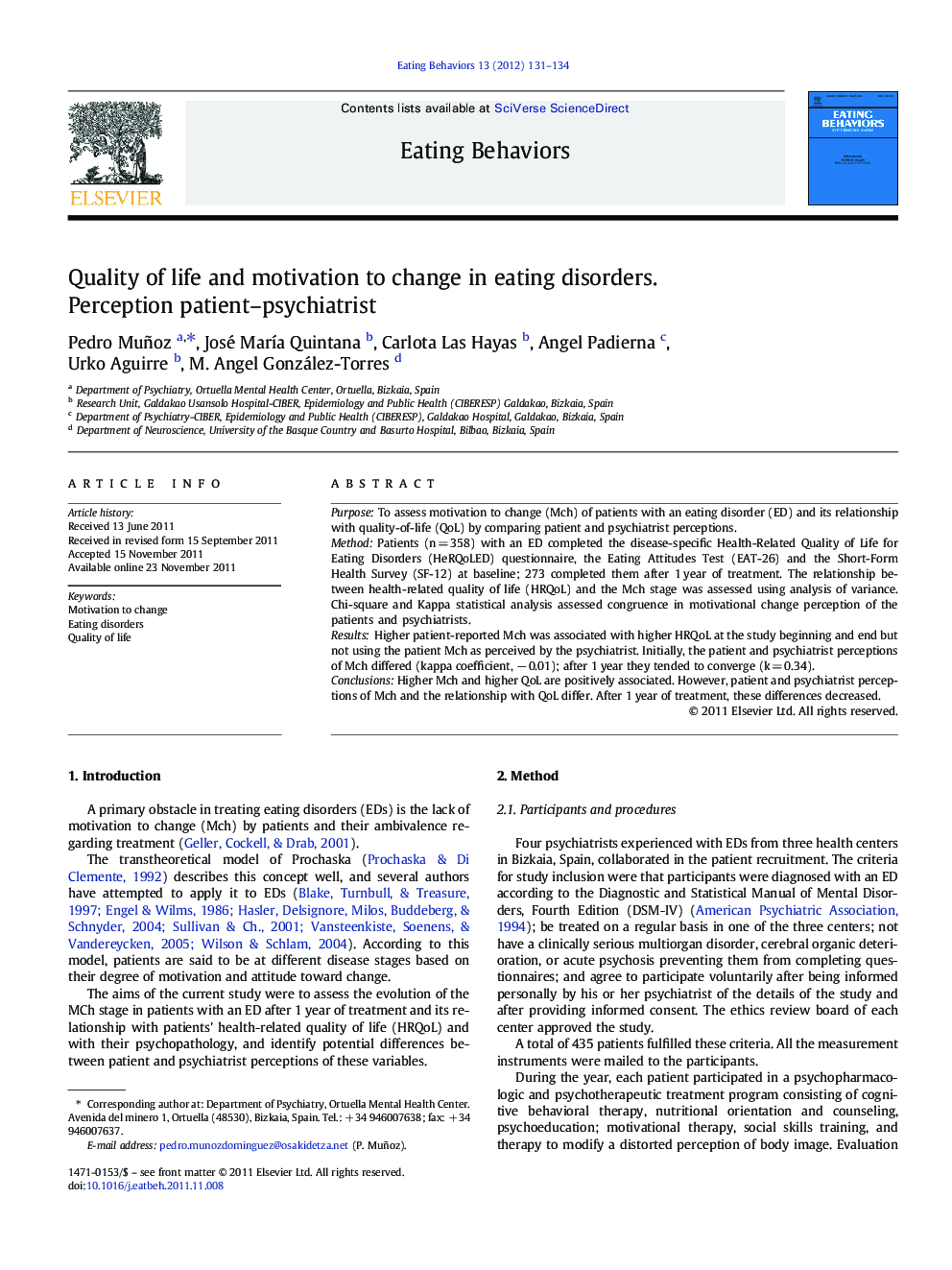| Article ID | Journal | Published Year | Pages | File Type |
|---|---|---|---|---|
| 906691 | Eating Behaviors | 2012 | 4 Pages |
PurposeTo assess motivation to change (Mch) of patients with an eating disorder (ED) and its relationship with quality-of-life (QoL) by comparing patient and psychiatrist perceptions.MethodPatients (n = 358) with an ED completed the disease-specific Health-Related Quality of Life for Eating Disorders (HeRQoLED) questionnaire, the Eating Attitudes Test (EAT-26) and the Short-Form Health Survey (SF-12) at baseline; 273 completed them after 1 year of treatment. The relationship between health-related quality of life (HRQoL) and the Mch stage was assessed using analysis of variance. Chi-square and Kappa statistical analysis assessed congruence in motivational change perception of the patients and psychiatrists.ResultsHigher patient-reported Mch was associated with higher HRQoL at the study beginning and end but not using the patient Mch as perceived by the psychiatrist. Initially, the patient and psychiatrist perceptions of Mch differed (kappa coefficient, − 0.01); after 1 year they tended to converge (k = 0.34).ConclusionsHigher Mch and higher QoL are positively associated. However, patient and psychiatrist perceptions of Mch and the relationship with QoL differ. After 1 year of treatment, these differences decreased.
► To assess the evolution of the motivation to change stage in eating disorder patients. ► There were differences between patient and psychiatrist perceptions. ► The quality of life improved after 1 year of treatment. ► A higher motivation to change was associated with a lower level of psychopathology.
